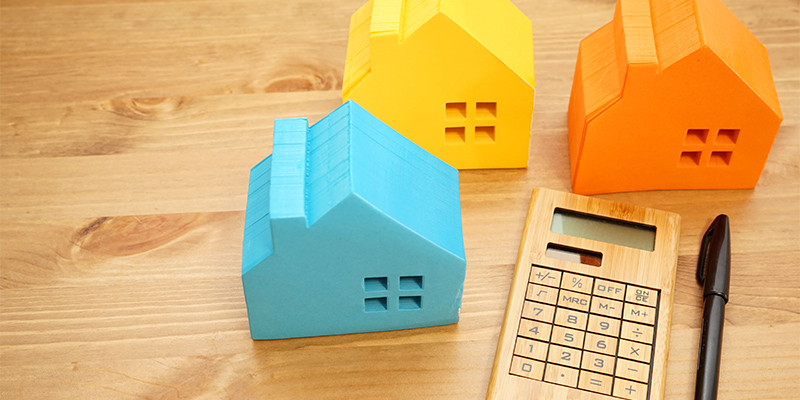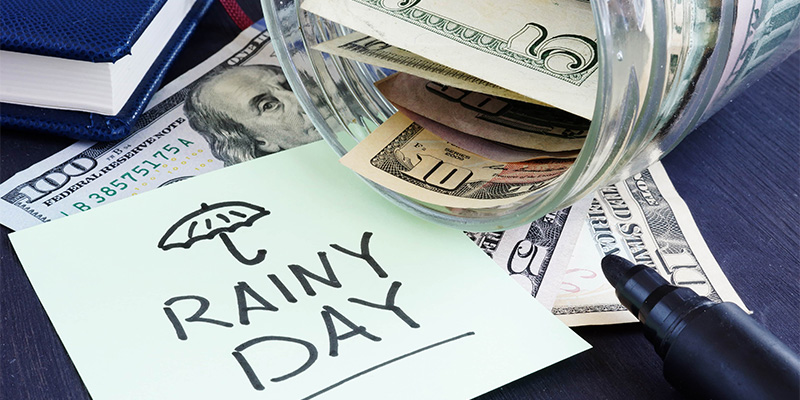Your Ultimate Guide to HOA Fees
HOA fees — they are a staple in any given homeowners association. But, what are they exactly? And what purpose do they serve?
What Are HOA Fees?
What is an HOA fee? Also known as HOA dues, HOA fees are fees that homeowners associations collect from its members, i.e. homeowners. When homeowners purchase a property within the HOA community, they agree to a set of covenants and rules set forth by the association. This includes paying HOA fees.
While HOA fees are paid regularly, the exact frequency depends on the association. Some HOAs have an annual payment setup, while others use a quarterly structure. More often than not, though, HOAs charge fees on a monthly basis.
What Do HOA Fees Cover?
Homeowners associations require funding in order to operate smoothly and continuously. But, not all HOAs are created equal. As such, the services HOA fees cover can vary from HOA to HOA. Typically, though, you can expect your homeowners association dues to cover the following:
- Maintenance and Repairs. Common areas and shared spaces require regular maintenance and the occasional repair work. In order to keep the community looking great and functioning well, a portion of the HOA fees should be allocated to maintenance and repairs.
- Landscaping. Beautiful landscaping can have a significant impact on curb appeal. When curb appeal is high, property values tend to follow.
- Insurance. Every HOA requires appropriate insurance coverage for various liabilities.
- Amenities and Services. Living in an HOA community grants you access to members-only amenities such as swimming pools, private parks, clubhouses, playgrounds, and fitness centers. HOA fees also usually cover services such as trash removal, snow removal, and security services.
- Reserve Fund Contributions. All HOAs need a reserve fund, which is set aside for future replacements, emergencies, and unexpected expenses.
If you want to know what HOA fees cover, it is imperative to ask the association you intend to join. Therefore, make it a part of your routine to ask for a copy of the HOA’s governing documents, especially the CC&Rs. These documents will contain specific information on restrictions and coverages.
How to Calculate HOA Fees
The process of calculating how much to charge homeowners in HOA fees is relatively simple. The HOA board is responsible for determining the amount after planning the annual budget.
They go over what the HOA expects to incur in costs for the upcoming year. This includes maintenance and repair services, insurance, utilities, landscaping, wages, and other vendor services. They also make sure to allocate enough money to maintain the right reserve fund level.
After arriving at the total anticipated expenses, they will then divide this by the number of homeowners in the community. This is the amount each homeowner must pay for the year. If the HOA collects on a monthly basis, the amount is further divided by 12. Keep in mind that board members are not exempt from paying HOA dues.
It is worth noting that not all HOAs divide the total expenses equally. Some homeowners may need to pay a larger fee depending on the size of their property. As always, it is best to check your HOA’s governing documents for confirmation.
How Much Are HOA Fees?
While there is no blanket answer to this question, average HOA fees can give you a rough estimate of how much you should set aside. HOA average costs can change depending on your location and the type of community you live in as well as what amenities and services your HOA provides. It could extend anywhere from $100 to $1,000. On average, though, HOA fees tend to play between the $200 to $300 range.
Why Are HOA Fees Too High?
 There are a few factors that can influence how much an HOA charges homeowners in monthly dues. A high delinquency rate, for instance, can tip the scales.
There are a few factors that can influence how much an HOA charges homeowners in monthly dues. A high delinquency rate, for instance, can tip the scales.
If there are too many homeowners not paying their dues on time, the HOA board might raise the fees in order to make up for the loss and stay solvent. Emergencies can also cause homeowner association fees to rise.
Sometimes, though, expensive HOA fees are a sign of poor financial management. It could indicate that the HOA is paying too much for services or is in a bad contract with a vendor. There have even been a handful of fraud cases involving HOA funds.
It is essential for the HOA board to remain transparent when it comes to financial activities. The board should always present the annual budget and financial statements to homeowners. This way, homeowners know where their money is going.
If you want to review your association’s financials, you can usually request a copy from the HOA board. After all, homeowners have a right to review the HOA’s financial records. Should the HOA board refuse to comply with a reasonable request, the homeowner can take legal action.
Low HOA Dues Can Be Equally Bad
On the other hand, having low HOA dues is not necessarily a good sign either. When fees are too low, it could mean that the association is skimping on essential maintenance and services. In doing so, it fails to provide homeowners with adequate common areas and amenities.
You might not immediately feel the effects of subpar maintenance. But, over time, you will start to notice things around your community not working properly. Furthermore, poor maintenance can affect curb appeal and bring down property values along with it.
Charging HOA fees that are too low can also give way to surprise costs. With a lack of funding, the HOA will be forced to levy special assessments when unexpected expenses crop up. And nobody wants to pay extra for something that should have been covered by the HOA fees from the beginning.
What Happens If You Don’t Pay HOA Fees?
Some homeowners might not want to pay HOA fees for whatever reason. When that happens, the HOA has multiple recourse options. Provided state laws and the HOA’s governing documents allow it, these options include but are not limited to the following:
- Late Fees. The HOA board can charge late fees when a homeowner misses a deadline for paying association dues.
- Suspension of Rights. Delinquent members may have their rights revoked until they settle their balance. This includes the right to use community amenities and the right to vote.
- Small Claims Court. With the help of an HOA attorney, the board can choose to take the delinquent homeowner to a small claims court to force the member to pay.
- Lien. Placing a lien on the homeowner’s property usually happens in more serious cases, but it remains a possibility even for smaller debts.
- Foreclosure. When the homeowner still refuses to pay their overdue HOA fees (plus any late fees), the HOA can foreclose on the lien and seize your property. Foreclosures can also affect your credit score.
How to Get Out of Paying HOA Dues
Homeowners agree to abide by the covenants and rules of the HOA when they purchase their property. Part of that is consenting to the payment of regular HOA fees.
By now, you already know that there are certain consequences of refusing to pay HOA dues. You could even lose your home. If you are struggling financially, consider talking to your HOA board and asking them to set up a payment plan that works for you. But, unless you want to face the repercussions of defaulting on your dues, it is best to continue paying them.
A Symbiotic Relationship
Living in an HOA community offers many benefits. These benefits, though, come with a price — HOA fees. Sometimes, people only rebel against something because they don’t understand it. Now that you know what HOA fees are for, you can think of it as quid pro quo. Your HOA provides you with value in the form of maintenance, services, and amenities in exchange for your diligent payments.
Collecting HOA fees can be a hassle if you lack the proper tools. With HOA management software from Condo Manager, you can streamline processes with ease. Schedule a free demo, call us at (800) 626-1267, or contact us online for more information.
RELATED ARTICLES:
- HOA Management Fee: Are They Charging You Right?
- 7 Reasons Why You Should Use A Property Management Accounting Software
- 4 HOA Financial Reporting Mistakes To Look Out For



 HOA boards must first send an HOA special assessment notice to inform homeowners of an impending collection. However, if the amount exceeds the HOA special assessment limit stipulated in the governing documents, the board must obtain approval from the homeowners.
HOA boards must first send an HOA special assessment notice to inform homeowners of an impending collection. However, if the amount exceeds the HOA special assessment limit stipulated in the governing documents, the board must obtain approval from the homeowners. HOAs can rely on their insurance coverage to cover the costs of property damage due to natural disasters. However, there are instances when the insurance payout is not enough to cover.
HOAs can rely on their insurance coverage to cover the costs of property damage due to natural disasters. However, there are instances when the insurance payout is not enough to cover.
 Many HOA boards struggle with the fulfillment of their daily responsibilities either due to a lack of time or expertise. If that situation sounds familiar to you, then perhaps it is time to receive help from a professional HOA management company.
Many HOA boards struggle with the fulfillment of their daily responsibilities either due to a lack of time or expertise. If that situation sounds familiar to you, then perhaps it is time to receive help from a professional HOA management company. It is important to understand that not all companies offer the same services and have the same fee structure.
It is important to understand that not all companies offer the same services and have the same fee structure.

 If your daily living expenses are already too high for you to handle, you may feel tempted to skip paying your condominium fees altogether. That is a bad idea, though.
If your daily living expenses are already too high for you to handle, you may feel tempted to skip paying your condominium fees altogether. That is a bad idea, though.
 Yes, you can write off HOA fees if you use your home as an office. This is an exception to the rule.
Yes, you can write off HOA fees if you use your home as an office. This is an exception to the rule. Assuming you qualify for the deduction, you must report the HOA fees on your
Assuming you qualify for the deduction, you must report the HOA fees on your 
 HOA dues, which are sometimes referred to as
HOA dues, which are sometimes referred to as  Many homeowners wonder how to fight a special assessment or their monthly dues. Unfortunately, there is generally no way around these.
Many homeowners wonder how to fight a special assessment or their monthly dues. Unfortunately, there is generally no way around these.
